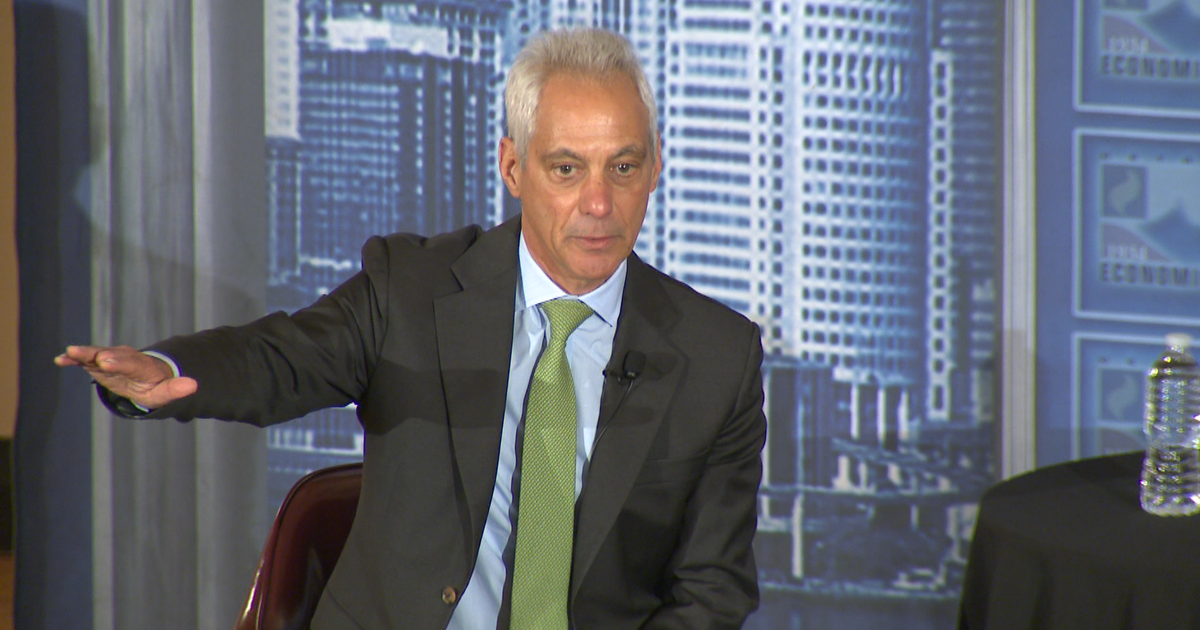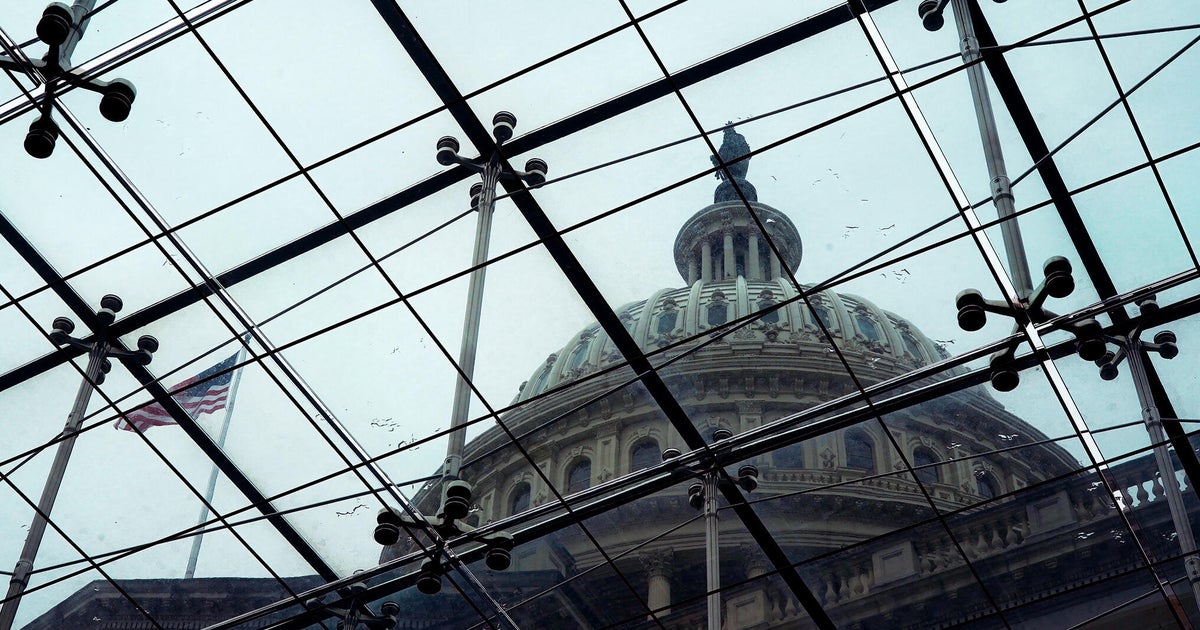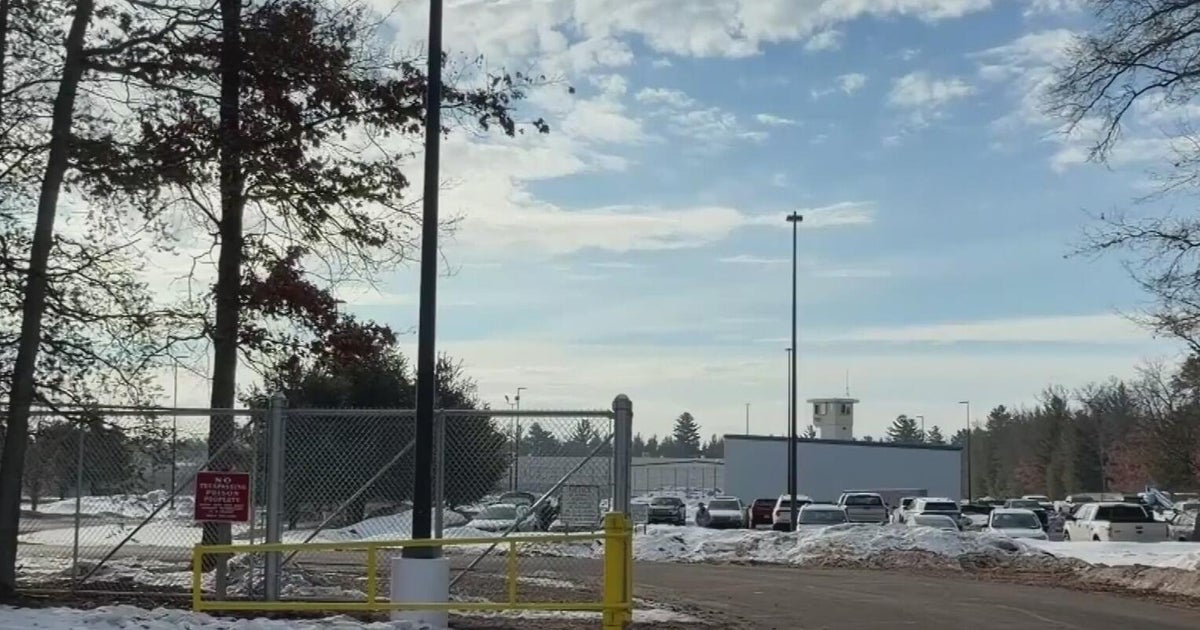Trump Chicago visit creates stir before he even arrives
A visit to Chicago by President Trump is stirring up a tempest before he even gets there. The president has repeatedly derided the city as the poster child of urban violence and dysfunctional Democratic politics.
CBS Chicago reports police are expecting large, boisterous crowds from both sides of the political aisle to show up as the president makes his way through town.
On Sunday night, protesters were set up outside Trump Tower with an altar and music for what was billed as a freedom walk. "We are here to change hearts and minds," said Pastor Emma Lozano.
Lozano is an activist with an immigrants' rights group whose members believe the president's policies have trampled on the freedom of people trying to lawfully immigrate to the United States.
"We should celebrate our immigrants, because they have built this city and built this country," Lozano said. "We all have come from somewhere else. We're the descendants of immigrants."
That protest happened amid the watchful eyes of numerous heavily armed police.
The last time Mr. Trump visited Chicago was as a presidential candidate in 2016 for what was supposed to be a campaign rally on the campus of the University of Illinois at Chicago. But after fights broke out between supporters and protesters awaiting his arrival at the arena, Mr. Trump canceled the event before taking the stage. He said he consulted Chicago police before making the decision.
The city's top cop at the time, interim Superintendent John Escalante, said Mr. Trump's account wasn't true.
Escalante said he believes the organizers of the rally canceled it because they could see that about half of the people inside the arena were anti-Trump.
"I think they saw that, and they didn't want to be embarrassed," Escalante said. "They could see it wasn't going to look good and told him, 'You are going to get shouted down,' and they made up this thing about safety concerns."
Five people were arrested at the 2016 rally, and four people were injured – including two police officers, CBS Chicago says.
Chicago Police Superintendent Eddie Johnson, the host of a gathering of police chiefs from around the country that Mr. Trump is to address Monday, said he won't attend the speech because he opposes the administration's immigration policies.
The city's mayor, Lori Lightfoot, also refuses to meet with Mr. Trump. She's criticized him in the past for proposing a rule that would allow federal contractors to make employment decisions based on religious convictions, and she's pushed back against tweets from the president's daughter, Ivanka Trump, about the city's gun violence.
Mr. Trump has frequently slammed Chicago for its gun problems, describing the shootings as "horrible carnage," calling the city a "total disaster" and comparing it to Afghanistan.
"I can't in good conscience stand by while racial insults and hatred are cast from the Oval Office or Chicago is held hostage because of our views on new Americans," Johnson said.
The bad blood runs deep between Mr. Trump and politicians in the Windy City, which Democratic rival Hillary Clinton took by more than 70 percentage points in 2016.
Days into his presidency, Mr. Trump warned that if Chicago didn't stem the violence, he would "send in the feds." In 2016, the city recorded its bloodiest year in nearly two decades, with more than 760 homicides.
The Trump administration has followed up on the threat with action.
Over the last two years, the Justice Department has added a dozen criminal prosecutors to the U.S. Attorney's Office in Chicago. In 2017, the department also created the Chicago Gun Strike Force, a partnership with the Chicago Police Department that led to 20 agents being added to the local Bureau of Alcohol, Tobacco and Firearms office.
Most of the gun violence occurs in a handful of low-income, predominantly African American neighborhoods on the city's South and West sides.
The U.S. Attorney's Office in Chicago reports a 44% increase in the number of defendants it has charged with gun-related offenses in 2019 compared with last year, a 15-year high for new prosecutions.
"We are using every available federal law enforcement tool to reduce violent crime and help keep our citizens safe," U.S. Attorney John Lausch said.
The number of homicides in the city has dropped 31% thus far in 2019 compared with the same point in 2016, and shooting incidents have decreased by 38% over that time period, according to Chicago Police Department data.
Police spokesman Anthony Guglielmi said Mr. Trump's Justice Department deserves credit for helping the police department make strides in reducing gun violence.
"We've never had a partnership as with the U.S. Attorney's Office as we've had with John Lausch," Guglielmi said. "He's gone on ride-alongs with the superintendent on holiday weekends. He's at all the gun stat meetings."
Johnson's decision to skip Mr. Trump's address angered the city's police officers' union, the Fraternal Order of Police, which said in a Facebook post that "such a gesture would be an insult to both President Trump and the office of the presidency itself and would be a mark of disgrace upon the city throughout the entire nation, including Mayor Lori Lightfoot."
Then FOP Lodge 7, which represents rank-and-file Chicago police officers, announced it had cast a vote of no confidence in Johnson.
The vote might please Mr. Trump, who likes to tell officers not to treat crime suspects so gently and was cheered at last year's gathering of the same police chiefs' organization in Orlando, Florida, when he advocated the use of the "stop and frisk" policing tactic that has been deemed unconstitutional.
The president's visit also comes at a complicated moment for the city. More than 25,000 members of the Chicago Teachers Union have been on strike since Oct. 17.
Johnson is also under an internal investigation opened after he was found sleeping in a city-owned vehicle earlier this month.
Lightfoot said the superintendent, who called for the investigation, told her he had "a couple of drinks with dinner" before he fell asleep at a stop sign while driving home. Johnson said the episode was related to a change in his blood-pressure medication.
In addition to his address to the International Association of Chiefs of Police, Mr. Trump is scheduled to address a campaign fundraiser.



